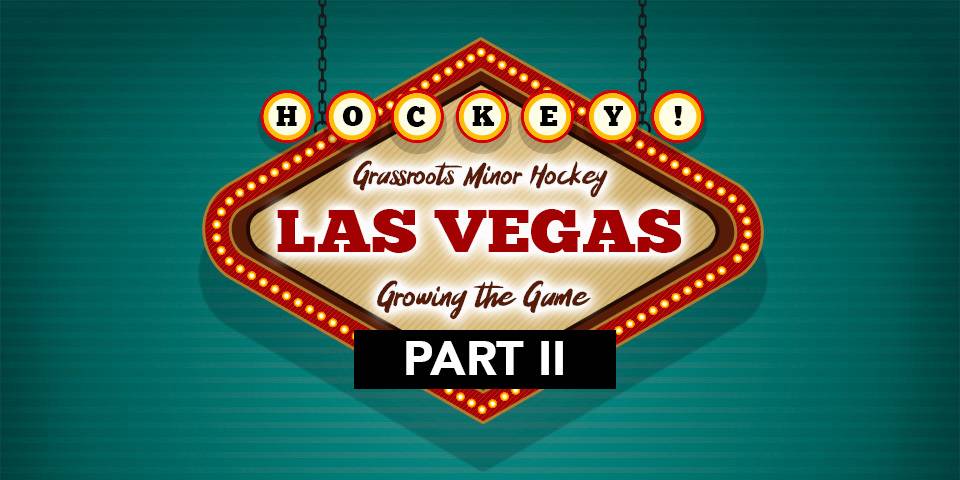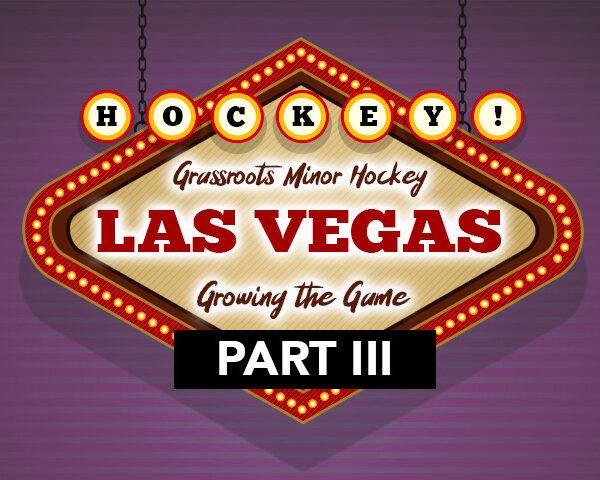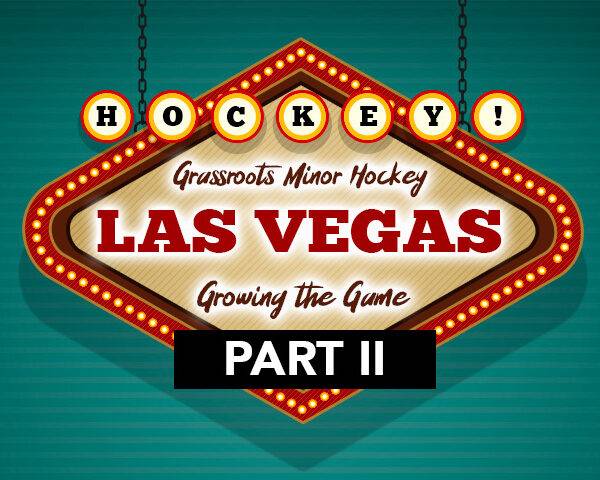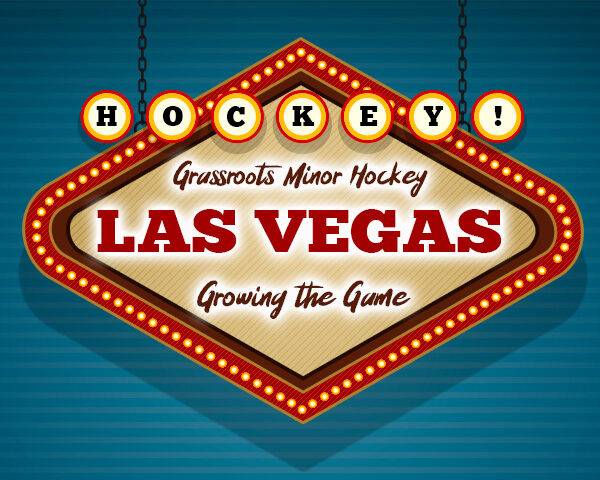Part 2 in our series on minor hockey in Las Vegas
There was already youth hockey in town when the Vegas Golden Knights launched as an NHL expansion franchise in 2017. Well, sort of.
The local youth hockey organization counted 100 kids in its 8-under age bracket. Based on analytics, studying the standard patterns of drop out rates in youth sports, by the time that group of kids were 12-13, there would have been barely enough of them still playing to assemble two teams.
In other words, youth hockey wasn’t exactly a growth industry in Vegas. The Golden Knights set out to change that dynamic. Four years later, by all measures, they have accomplished their goal.
At the start of the 2020-21 season, there were more than 800 kids registered to play youth hockey in Vegas in the 8-under division.
“To have it grow eight fold in four years is incredible, said former NHL goalie Darren Eliot, who serves as Vice President of Hockey Programming and Facility Operations for the Golden Knights.
To create a long-term NHL success story in a non-traditional hockey market, the Golden Knights recognized from Day 1 that winning on the ice was just one factor in the equation.
Convincing the community to embrace hockey as their game was going to be every bit as valuable as each win and all the playoff appearances the team could accumulate. Not that success between the boards was a bad idea, mind you. Winning is always helpful.
Eliot, as well as Misha Donskov, the director of hockey operations for the Golden Knights, worked together on similar programs in Atlanta when the Thrashers joined the NHL in 1999. But they never were able to create the same kind of environment that’s clicked from Day 1 in Vegas.
“It all goes together,” Eliot said. “They (Golden Knights fans) want to care about their team and they do here. But one advantage we have here that the Thrashers didn’t is that Atlanta never had a playoff run, so there wasn’t that bonding with the team.
“In Vegas, it’s the first pro team and a success all four years. It helps to really embed that kind of loyalty to the Golden Knights.”
Another factor is the team’s willingness to invest in infrastructure at the grassroots level. Bill Foley, owner of the Golden Knights, has put his money where his mouth is, displaying that the club really believes in growing the game and they’re willing to foot the bill to help make it happen.
The club built a practice facility for the Golden Knights with two ice pads that accommodate area youth hockey when not being utilized by the NHL team. They are building a second two-pad ice complex in nearby Henderson, Nevada that will serve as practice facility for the AHL Henderson Silver Knights, the club’s top farm club, and will also be accessible to the youth hockey programs.

“You’ve got seven sheets of ice (for minor hockey) if you add in T-Mobile (Arena, home to the Golden Knights) and the new one coming.”
“Bill Foley and his investors, they built City National Arena to be the Golden Knights practice facility,” Eliot said. “It’s state of the art, a 140,000 square foot two-rink facility. They’ve done the same thing for the American League team. they’re building an event centre where Henderson will play their AHL games. That’ll be open in March. So we built another 120,000 square foot bigger-than-you-need-to facility for youth hockey.
“They added four sheets of ice that we have complete control over and access to.
“There’s two other existing facilities that are pretty beat up but they’re benefiting from the Vegas Golden Knights coming here. So you’ve got seven sheets of ice if you add in T-Mobile (Arena, home to the Golden Knights) and the new one coming.”
Vegas ownership and management succinctly recognize that one of the benefits of building a strong youth hockey program is that through osmosis, it’s also building a bigger fanbase for the team with each passing season.
In these markets that are new to the game, strong youth hockey programs aren’t intended to build future NHL players.
“That’s the unicorn theory,” Eliot said. “It’s a long shot (to make the NHL) no matter where you grow up.”
What a growing youth hockey program will do, however, is build future NHL fans.
It’s a simple philosophy, really.
Take someone to the hockey rink to watch and you’ll make them a fan for a game. Teach someone to play hockey and you’ll make them a fan of the game for life.
“I’m coaching an 8-under youth team,” Eliot said. “We get on the ice once a week and it’s fun. It’s really fun.”
The Golden Knights have built a youth hockey program from the ground up, starting with Learn to Skate through to boys and girls rep teams.
Las Vegas minor hockey has grown tremendously since the Golden Knights arrived thanks to the NHL club’s investment in building new rinks in Nevada.
Las Vegas minor hockey has grown tremendously since the Golden Knights arrived and began to build a strong grassroots youth hockey program.




